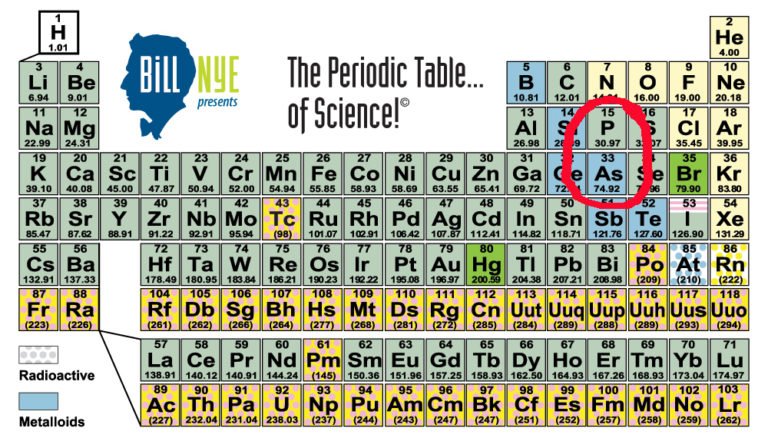Bill Nye • Dec 02, 2010
Arsenic and Deep Space?
If you or I ingest arsenic, well...it doesn't go so well. If you are, on the other hand, a certain species of bacterium from Mono Lake, California, ingesting this seemingly toxic metal is simple enough. You would have a way to use arsenic in the place of phosphorus -- not just in some chemical reactions, but in your very DNA, the instructions for living. Felisa Wolfe-Simon, a NASA Astrobiology Research Fellow, and her colleagues have found that a bacterium from the Halomonadace ae family of proteobacteria is able to completely swap arsenic for phosphorus.
Note that arsenic is immediately below phosphorus on the Periodic Table of the Elements. Perhaps you remember the silicon-based creature called horta in the original Star Trek series. The idea was that silicon is right below carbon in the periodic table; they are in the same chemical period. While swapping silicon for carbon is probably not a possibility, this is the same concept -- except that it's science, not science fiction. Arsenic is highly toxic to living things like us, but, chemically, it behaves in a similar way to phosphate.

Another exciting aspect of this discovery is that not only do these organisms live in an extreme environment, they are an extreme life form.
Who knows what other organisms are right under our noses that have perhaps taken it yet another step? They might not even use DNA at all. They could be an entirely different type of life. If these arsenic-lovers can be discovered in such a well-researched lake, who knows what else is out there, on our world or somewhere far, far away? This kind of research is an adventure. It helps us appreciate the remarkable nature of life on Earth. It helps us know our place in space. We at The Planetary Society will keep searching and encourage people everywhere to support this kind of research.
Find out more about Planetary Society programs that search for extraterrestrial life, test the hardiness of microorganisms, and enhance the quest to find new intriguing exoplanets.
The Time is Now.
As a Planetary Defender, you’re part of our mission to decrease the risk of Earth being hit by an asteroid or comet.
Donate Today

 Explore Worlds
Explore Worlds Find Life
Find Life Defend Earth
Defend Earth

